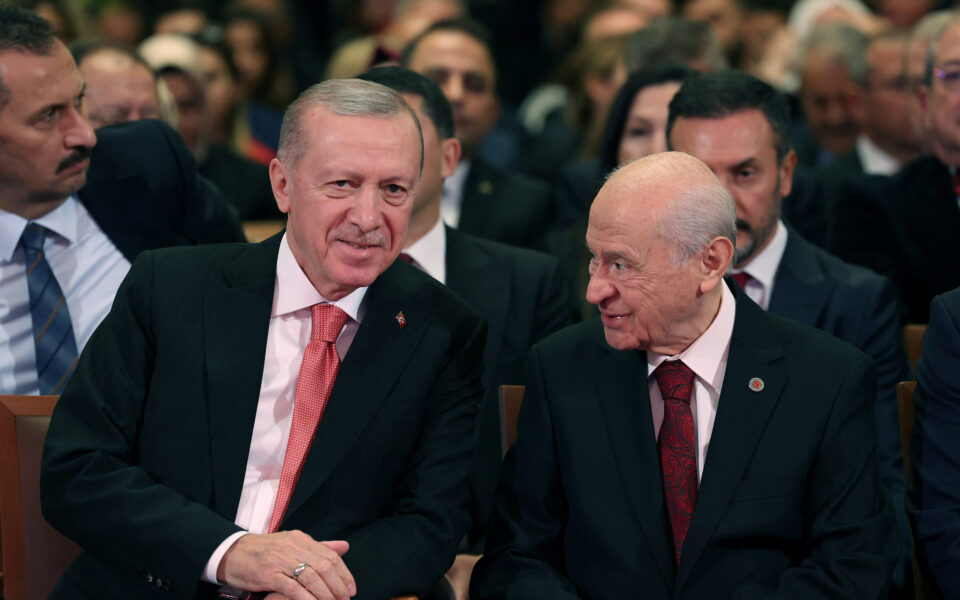A few weeks before the US elections, Devlet Bahceli, Turkey’s extreme nationalist, “Kurd slayer” and junior partner in Recep Tayyip Erdogan’s government, sent shock waves through the National Assembly when he shook the hands of members of the Kurdish DEM party, whose closure he had been demanding till then. A few days later, Bahceli asked that Abdullah Ocalan, the jailed leader of the Kurdish autonomist PKK, be brought to the National Assembly to “proclaim that terrorism has been completely eradicated and that the organization has been dissolved.” Since then, Turkish analysts have been trying to understand the thinking behind the “Kurdish gambit,” as a respected former diplomat described it.
As Erdogan’s top priority is always his own political survival, there is no way that Bahceli acted of his own accord. Clearly he functioned as a pawn, whose move was aimed at benefiting Erdogan first of all. Currently, the Turkish president is seeking ways to change the constitution so that he can be a candidate in the 2028 presidential elections. A few days ago, he tied the Kurdish issue to this, saying, “We hope that we can expand the base of social consensus on the new constitution.” Possibly, the governing coalition wants to gain the support of DEM for the necessary number of votes in the National Assembly. (At the same time, the government removed three mayors who were backed by this party, accusing them of links with “terrorism.”)
Amending the constitution allows the lowering of the 50% threshold for forming a coalition government. Bahceli would gain from this. And yet, perhaps this would not be enough to explain such a sudden change of heart. In Turkey, fears are growing that the Israel-Iran clash will weaken Iran and so strengthen the position of the Kurds in the four countries over which they are spread. New Israeli Foreign Minister Gideon Saar’s declaration that his country should work with its “natural” allies the Kurds, for “both political security” reasons, will have intensified these fears.
In this light, some observers believe that the “opening” is aimed mainly at the Kurds of Syria, as Ankara is doing whatever it can to prevent the country’s adoption of a federal system and has no channels of communication with the Assad government. The unpredictability of a Trump administration will further complicate all of Erdogan’s choices. Whatever the reason, conciliation with the Kurds ought to be an end in itself.

